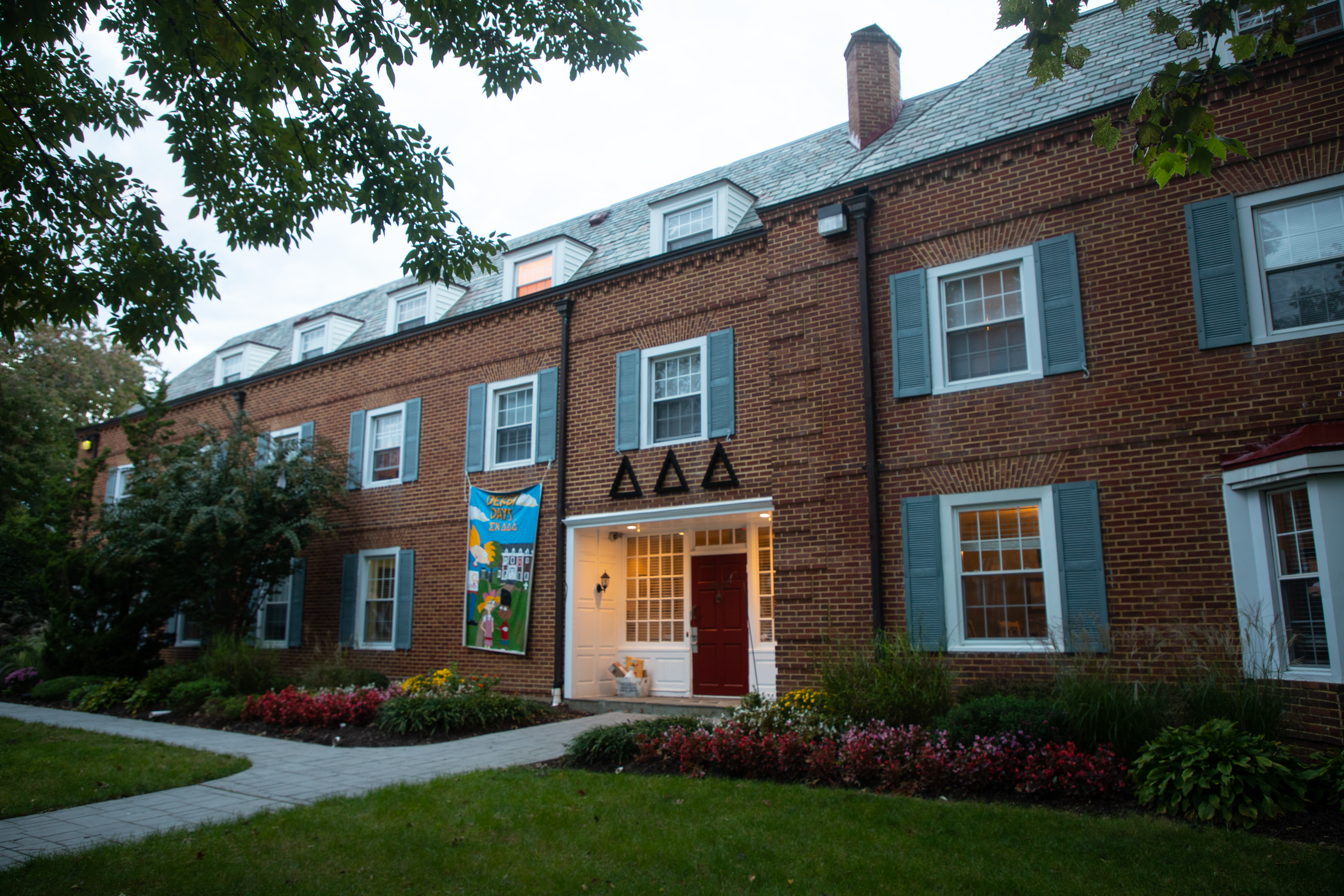Ally Zamer walked up to the steps of the Tri Delta sorority house on Friday and breathed a sigh of relief.
It had been a month since mold in bedrooms and common areas — covering clothes, textbooks and walls — sent her and her 62 housemates into College Park hotels.
“It’s just nice being able to go down the hall and see my friends again,” said Zamer, Tri Delta’s finance vice president. “Everything just fell right back into place.”
The sorority house was among the numerous student residences at the University of Maryland affected by mold after humid conditions in the summer and early fall.
“We probably had calls from every one of the older [Greek life] buildings,” said Department of Fraternity and Sorority Life official Bob Nichols. “We’ve had mold calls every summer for the past five or six years. … We certainly had an increase in calls because of the conditions, but we didn’t have the kind of full-scale: ‘Oh my gosh, we had no idea that it was happening.’”
[Read more: UMD students say they’ve found mold in at least 10 dorms and apartments]
Private contractors hired by the national chapter later uncovered issues with the building’s heating, ventilation and air conditioning and insulation, and began intensive repairs, Tri Delta CEO Karen Hughes White wrote in a statement.
“The repairs to the house were lengthy, but thorough, including repairs to the roof, heating and air conditioning and interiors and additional work will be done when our members are out of the house during the holiday break in December and January,” she wrote.
The sorority house is privately owned, meaning the university wasn’t responsible for remediation or repairs, but it did provide advice and some cleaning services through Facilities Management, said Nichols, DFSL’s associate director of facilities and operations.
“[The house is] still filled with our sisters, so we, as a department, provide whatever support we can, usually in the form of advice or if they ask us what we’re doing about something … but this was pretty much handled by their national housing authority,” he said.
All of the Tri Delta sisters were moved to the Cambria Hotel or The Hotel at the University of Maryland on Sept. 23 at the national chapter’s expense, White wrote.
Zamer, a junior accounting and finance major, said that while the arrangement was nice at first, she and her Tri Delta sisters wanted to return to their house — and a normal college experience — soon after they moved out.
“It gets old after awhile, and I think we were all starting to get cabin fever,” she said. “It’s just harder to see people because it’s not the same type of experience we were expecting, which made it much more rewarding to come back into the house.”
[Read more: Dozens of UMD housekeepers say they’ve gotten sick from cleaning mold]
The national chapter reimbursed students for their hotel stay and meals but did not immediately assist students with personal property damages, said Tri Delta President Maddie Cohee.
It did, however, later provide each affected resident with a $200 Visa gift card “to defray cost and inconvenience associated with the relocation,” White wrote.
“When we signed our [housing] contract, [the national organization is] not responsible for our personal items in the house, kind of like if someone were to steal something from our room, it’s not their responsibility to pay for it,” said Cohee, a junior geographic sciences and government and politics major. “Some girls are working on trying to reason with them to at least have some of their stuff reimbursed.”
Brittany, a sophomore in the sorority who asked to be identified by a pseudonym, was frustrated by the lack of property reimbursement. Many of her belongings were caked in mold, and she lamented that she had “no clothes or jackets or anything” after a week.
“[The national chapter] said it’s our responsibility, but it’s really not because it’s not like the damage was done by me,” she said. “It was done because they didn’t take care of their house.”
Meanwhile, this university is not providing monetary compensation for students’ belongings damaged by mold in campus housing, but did cover students’ hotel costs and offer free laundry machine usage to those affected.
After a whirlwind first two months, Zamer said she is glad that everything is returning to normal.
“It’s very welcoming to come home to everything prim and proper,” she said. Everyone’s officially moved back in and we’re gonna finish off the rest of the semester, and we’re all just really excited.”



